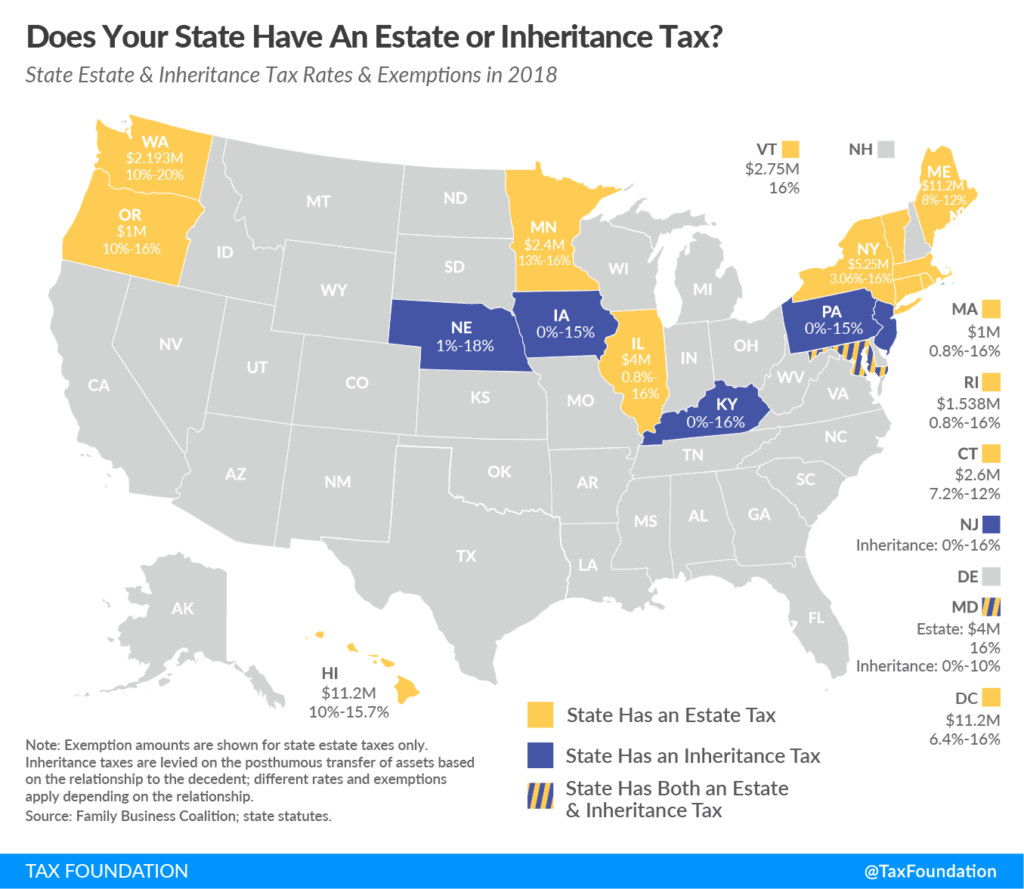Governor Dayton is wrong on the estate tax
The federal Tax Cuts and Jobs Act of 2017 was the biggest overhaul of federal taxation since 1986. Among its changes was an increase in the federal estate tax exemption from $5.6 million to $11.2 million. This is likely to intensify competition between states and put pressure on those, like Minnesota, with estate taxes at high rates, to either abolish them or, at least, raise their exemption to the new federal level.
Figure 1 – State estate and inheritance tax rates and exemptions, 2018

Source: The Tax Foundation
These changes will simply reinforce a trend which has developed since the Economic Growth and Tax Relief Reconciliation Act of 2001 (EGTRRA). This ended the era of limited interstate tax competition over state death taxes by phasing out the state death tax credit between 2002 and 2005. Without the tax credit, states that retained their death taxes imposed a much more substantial tax burden on estates from 2006. Worried that residents would leave to avoid paying the tax, Arizona, Indiana, North Carolina, Ohio, Oklahoma, Tennessee, and Wisconsin have all abolished their estate taxes since then. More recently, as the Tax Foundation reports, New York raised its exemption level to $5.25 million this year and will match the federal exemption level by 2019, the District of Columbia is set to conform to the federal level this year after meeting its revenue triggers, New Jersey will fully phase out its estate tax by 2018, and Delaware repealed its estate tax this year.
Sadly, Minnesota’s Governor Mark Dayton wants to move our state in the wrong direction. In his budget bill, he proposes to freeze the estate tax exemption level at $2.4 million instead of the scheduled $3 million. As we wrote in our recent report, The Cost of Minnesota’s Estate Tax, Minnesota’s government is already likely losing revenue thanks to its estate tax in the form of lost sales and income tax revenues from those residents who leave to avoid paying the tax. Gov. Dayton’s proposal is completely backwards and we must hope it ends up in the waste paper basket.
John Phelan is an economist at the Center of the American Experiment.